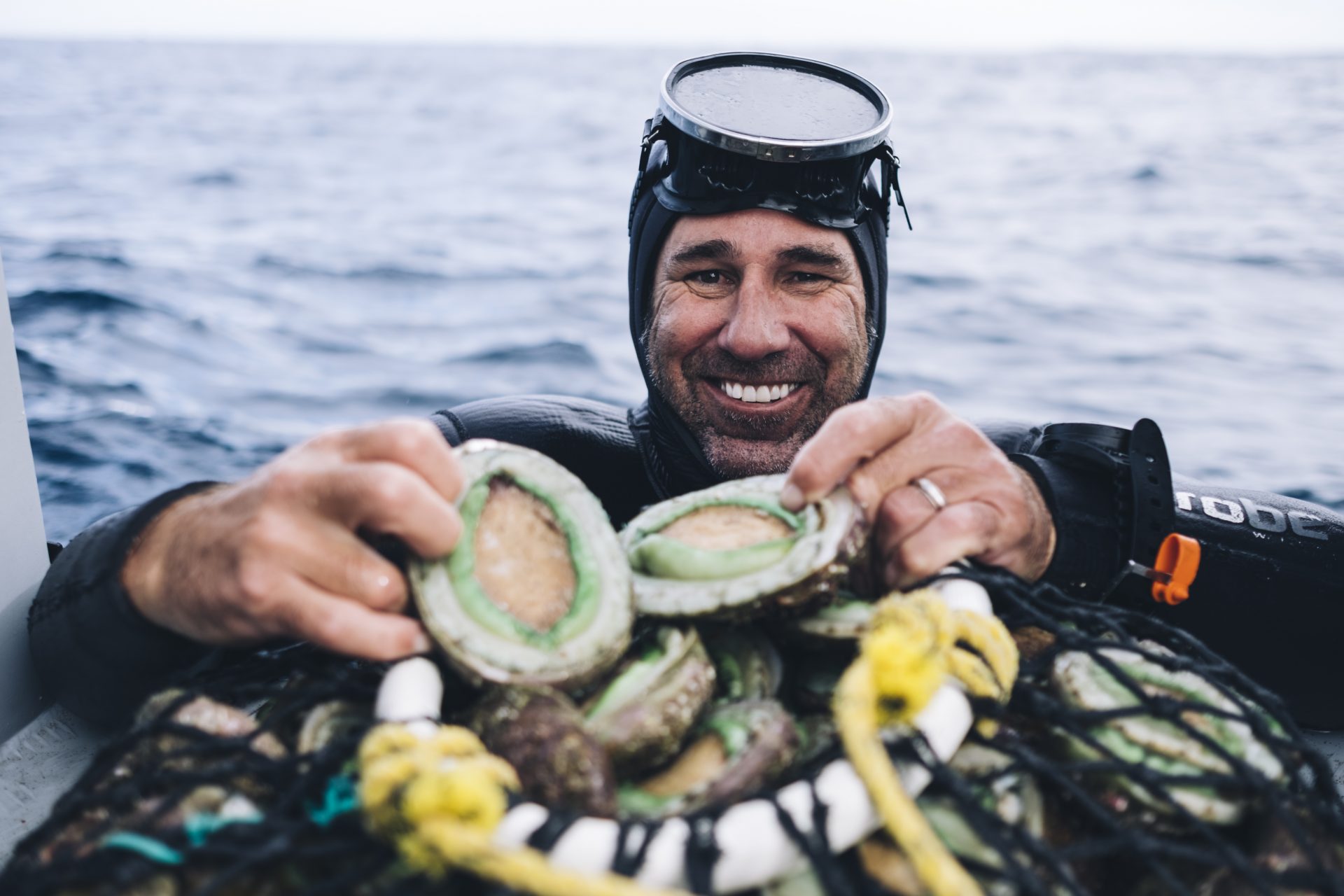Aussie innovator creates unique abalone ‘reef ranch’
By Leon Gettler, Talking Business >>
HOW DID Rare Foods in Western Australia turn an abalone ‘ranch’ with innovative artificial reefs into a listed company and global export business?
It’s a fascinating story.
Brad Adams, the founder of Rare Foods Australia, started as a young abalone diver, harvesting these gastropod mollusc delicacies in the wild.
It was something of a ‘given’ that he would do so as his father, Terry, had founded the commercial wild abalone diving industry in Flinders Bay, in the south-western region of WA, in the 1960s.
When Brad Adams saw the stocks declining in the 2000s, his company started an innovative process of creating artificial reefs on the seabed and bringing in abalone from the business's hatchery. 
That went well. Then around 2011, the company started trialling the design of the artificial reefs, their location, and experimenting with how many abalone should go onto those reefs.
It developed the Abitat reef which is a play on the words ‘habitat’ and ‘abalone’.
Since 2014, the business has grown to have 10,000 abitats on the seabed.
“To give you an idea of the scale of the business, 10,000 abitats side by side equals 20km of reef,” Mr Adams told Talking Business. “And on that reef there’s 2 million abalone living on it.
“We harvest up to 90 tonnes a year of wild abalone for export markets around the world now.”
Abalone ranch leads the world
Brad Adams’ company is the only one in the world using artificial reefs to harvest and export abalone.
It has well-proven sustainability because all the company is doing is drawing abalone from the hatchery onto the artificial reef. Rare Foods Australia has also now received Marine Stewardship Certification as a wild fishery.
“From what was sand and sea grass, we’ve created Australia’s newest fishery,” Mr Adams said.
‘”Now the government is a big supporter of what we do because we’ve created something unique and something that other states don’t have – and we’re producing more abalone now than out of Western Australia’s entire wild catch industry combined.”
The company turned to investors to help scale the business up. Rare Foods Australia started out drawing investment from family and friends “that I convinced I wasn’t completely nuts” and it grew from there to list on the Australian Securities Exchange (ASX) in 2017 and tap into the equity markets on the east coast.
“That investment in 2017 allowed us to double the size of the reef and also invest in a state-of-the-art processing facility,” Mr Adams said.
Innovating beyond abalone
Extraordinarily, the company has now also diversified from being a fishing business to ‘cellaring’ wines on the seabed.
Mr Adams said this came about when he discovered that the market wanted other premium products from WA. Wine was an easy choice.
Mr Adams said cellaring wine on the seabed had been pioneered in France and other locations by high-end wine companies.
He said the interest in wines cellared on the WA seabed was “gathering a lot of steam”.
“It’s a way of maturing the wine quicker and provides a unique point of difference,” Mr Adams said.
“What we found was that by placing the wine in sealed containers on the seabed for 12 months, the wine has a much more complex flavour than its land-matured cousin.
“Each bottle has its own unique signature. The demand for these wines is through the roof.” 
Hear the complete interview and catch up with other topical business news on Leon Gettler’s Talking Business podcast, released every Friday at www.acast.com/talkingbusiness
ends

 How to resolve AdBlock issue?
How to resolve AdBlock issue?